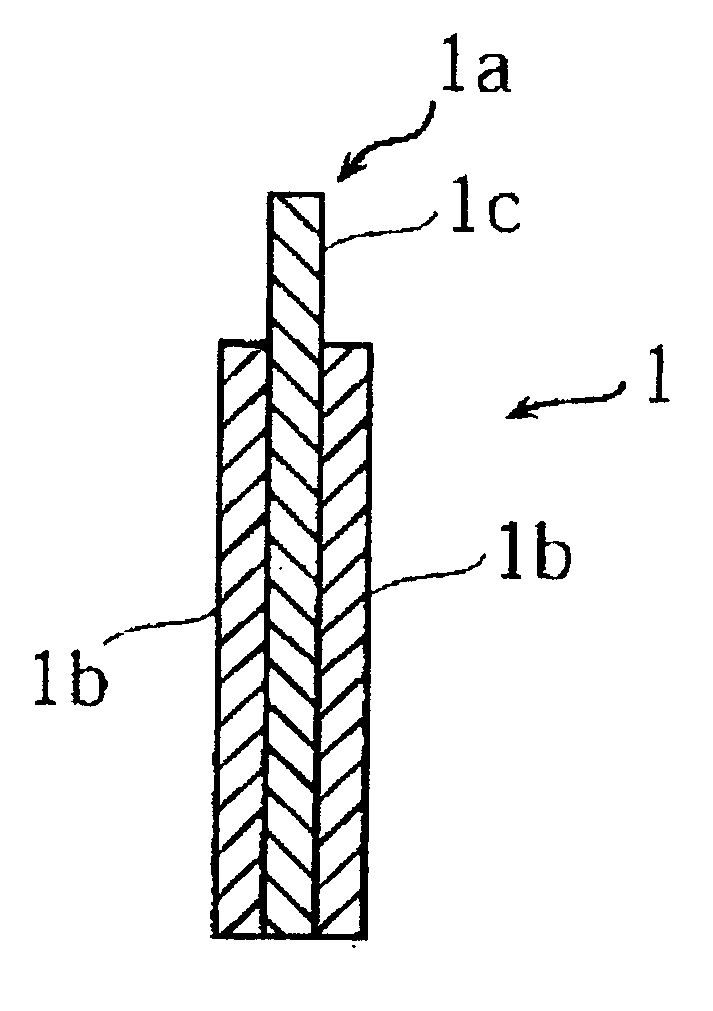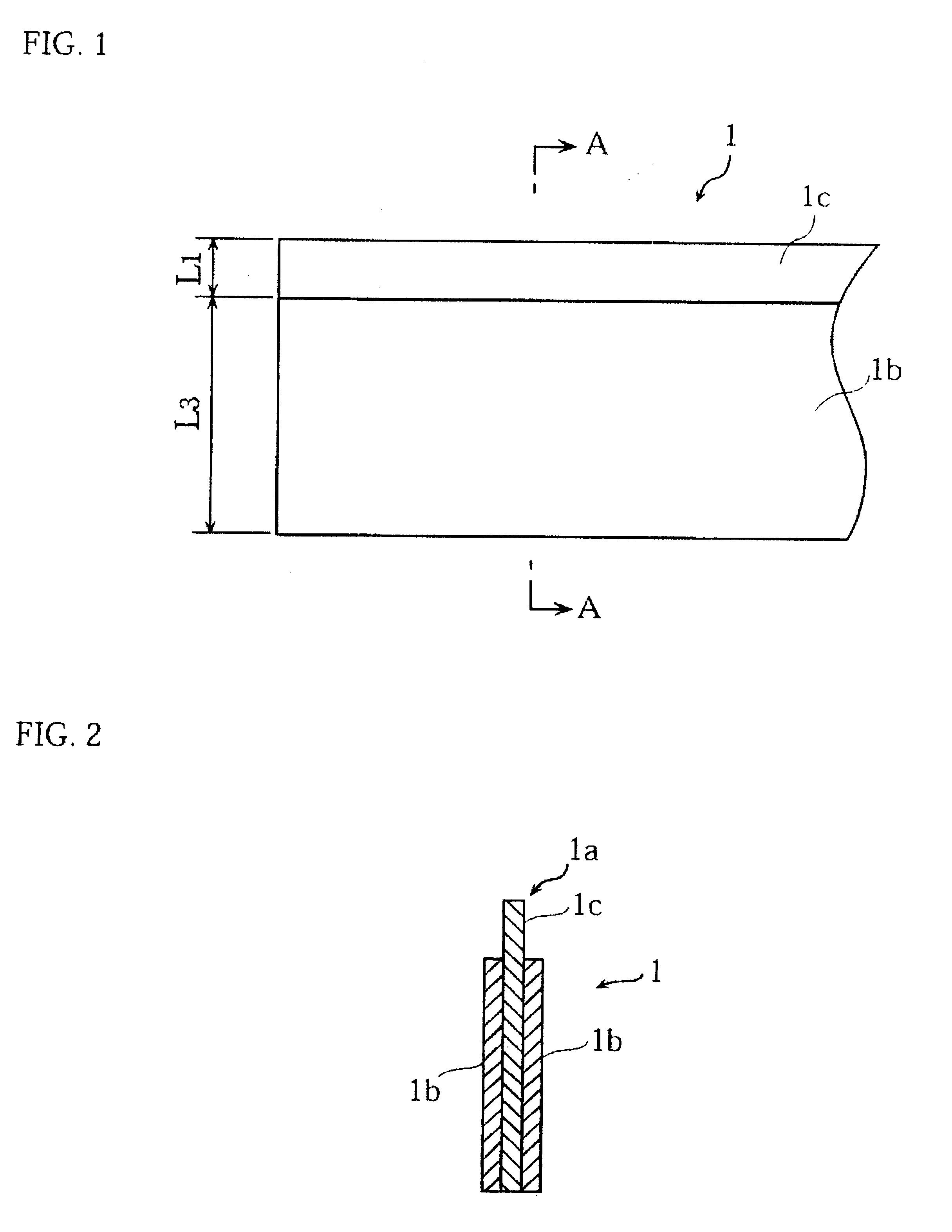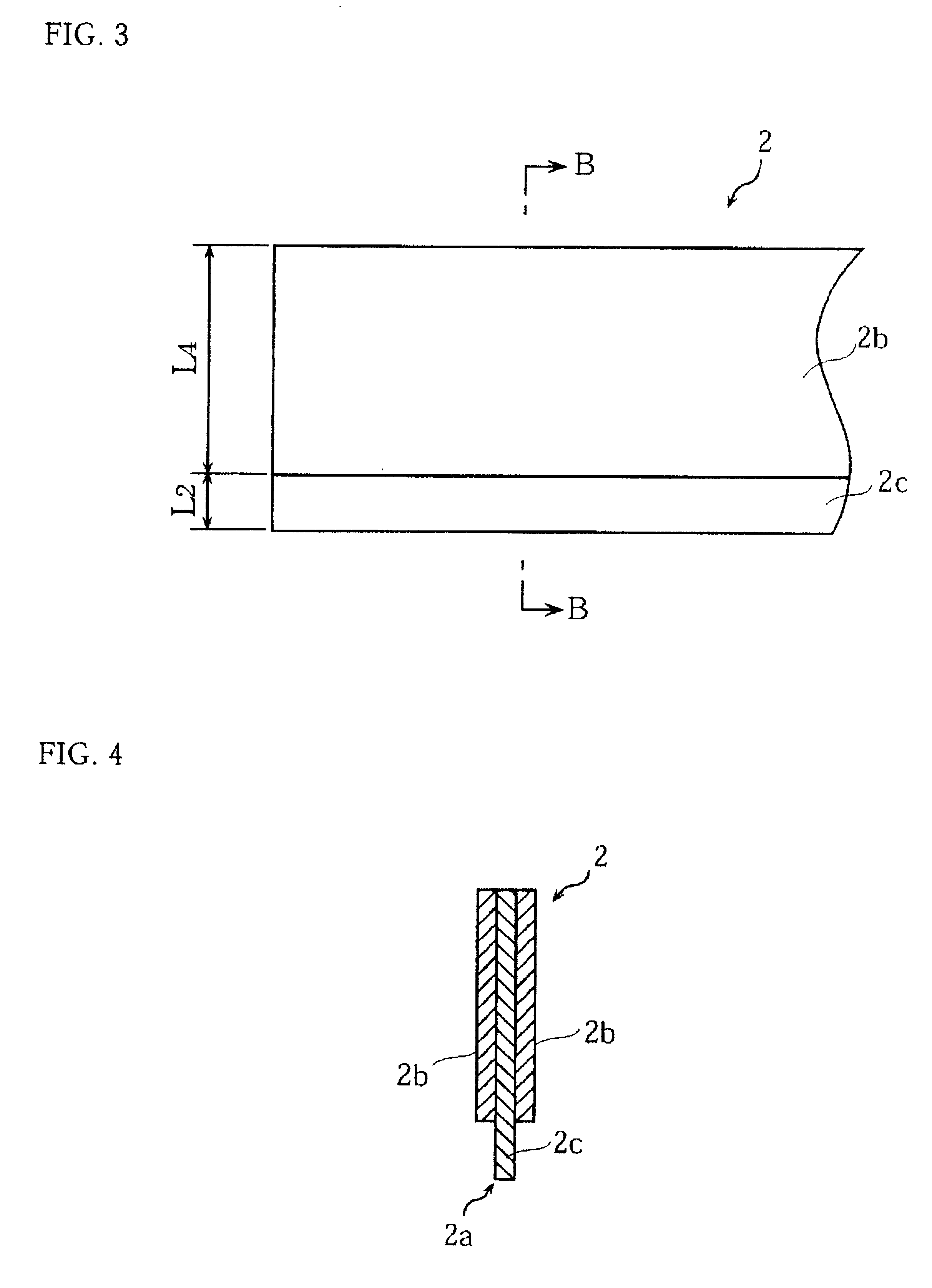Method of manufacturing cylindrical non-aqueous electrolyte secondary cell
a non-aqueous electrolyte and secondary cell technology, applied in the direction of non-aqueous electrolyte cells, wound/folded electrode electrodes, sustainable manufacturing/processing, etc., can solve the problems of difficult to obtain a satisfactory current collection effect, cylindrical non-aqueous electrolyte secondary cells have certain drawbacks, and the lead-attaching area of cylindrical non-aqueous electrolyte secondary cells is prone to damag
Inactive Publication Date: 2001-02-27
SANYO ELECTRIC CO LTD
View PDF8 Cites 67 Cited by
- Summary
- Abstract
- Description
- Claims
- Application Information
AI Technical Summary
Problems solved by technology
However, when the cell is a large-sized one with a large electric current, it is difficult to obtain a satisfactory current collecting effect.
However, such cylindrical non-aqueous electrolyte secondary cells have certain drawbacks.
In this case, when the current collectors have a small thickness of less than 50 .mu.m, the lead-attaching area thereof is apt to be damaged since, in spot welding, pressure is applied to the area.
To prevent the damage, the lead-attaching area requires a reinforcement means, for example, by metal foil and the like, which consequently lowers production efficiency.
However, laser welding incurs a different problem.
In the present state of the art, in welding a lead to a lead-attaching area, it is extremely difficult to direct a laser beam to an exact position to be welded.
As a result, the irradiated area of the lead is fused and holes are formed, and the laser beam passes through the holes and reaches the internal electrode assembly, resulting in fusion of the electrode assembly and thereby a short circuit.
In the subjected lead, even if an area where the lead-attaching area is not disposed is irradiated with the laser beam and holes are fo
Method used
the structure of the environmentally friendly knitted fabric provided by the present invention; figure 2 Flow chart of the yarn wrapping machine for environmentally friendly knitted fabrics and storage devices; image 3 Is the parameter map of the yarn covering machine
View moreImage
Smart Image Click on the blue labels to locate them in the text.
Smart ImageViewing Examples
Examples
Experimental program
Comparison scheme
Effect test
 Login to View More
Login to View More PUM
| Property | Measurement | Unit |
|---|---|---|
| Length | aaaaa | aaaaa |
| Length | aaaaa | aaaaa |
| Length | aaaaa | aaaaa |
Login to View More
Abstract
A method of manufacturing a cylindrical non-aqueous electrolyte secondary cell according to the present invention comprises a first step of forming a lead-attaching area on which an active material layer is not formed, in a positive electrode wherein a positive electrode active material layer is formed on both sides of the positive electrode current collector and a negative electrode wherein a negative electrode active material layer is formed on both sides of the negative electrode current collector, and winding the positive electrode and the negative electrode with disposing a separator therebetween so that the lead-attaching areas are protruded from the edges of the separator, and a second step of disposing a lead at an end part of the lead-attaching area with interposing a metal plate having a multiplicity of holes, and thereafter laser-welding the lead and the metal plate and the lead-attaching area by applying a laser beam with a spot diameter larger than a hole diameter of the metal plate. According to the present invention, it is feasible to laser-weld a lead to a lead-attaching area without fear of a short circuit resulting from the fusion in an electrode assembly caused by a laser beam.
Description
(1) Field of the InventionThis invention relates to a method of manufacturing a cylindrical non-aqueous electrolyte secondary cell, and more particularly to a method of manufacturing a cylindrical non-aqueous electrolyte secondary cell usable for a battery-powered vehicle and the like, wherein a high power density is required.(2) Description of the Prior ArtA conventional cell of this type generally has a spiral type electrode assembly in which a sheet type positive electrode and negative electrode are spirally wound with a separator disposed therebetween. Electric current is collected from the spiral electrode assembly through conductive labs that are attached on each end part of the aforementioned electrode and current terminals that are electrically connected to the conductive tabs. In a cell of this type, when the cell is a small-sized cylindrical non-aqueous electrolyte secondary cell with a small electric current, the current collecting effect can be sufficient. However, when ...
Claims
the structure of the environmentally friendly knitted fabric provided by the present invention; figure 2 Flow chart of the yarn wrapping machine for environmentally friendly knitted fabrics and storage devices; image 3 Is the parameter map of the yarn covering machine
Login to View More Application Information
Patent Timeline
 Login to View More
Login to View More IPC IPC(8): H01M2/22H01M10/36H01M10/40H01M6/02H01M2/26H01M10/04H01M50/528H01M4/66H01M6/16H01M10/05H01M10/0566H01M10/058H01M10/0587H01M50/536H01M50/538
CPCH01M2/263H01M10/0431H01M10/0568H01M10/0569H01M10/38H01M10/0525H01M4/505H01M4/525H01M4/587H01M4/661Y10T29/49108H01M2300/0037Y02E60/122Y02T10/7011Y02E60/10H01M50/538Y02P70/50H01M50/536Y02T10/70
Inventor NAKANISHI, NAOYAINOMATA, HIDEYUKINOGAMI, MITSUZOUYONEZU, IKUONISHIO, KOJI
Owner SANYO ELECTRIC CO LTD
Features
- R&D
- Intellectual Property
- Life Sciences
- Materials
- Tech Scout
Why Patsnap Eureka
- Unparalleled Data Quality
- Higher Quality Content
- 60% Fewer Hallucinations
Social media
Patsnap Eureka Blog
Learn More Browse by: Latest US Patents, China's latest patents, Technical Efficacy Thesaurus, Application Domain, Technology Topic, Popular Technical Reports.
© 2025 PatSnap. All rights reserved.Legal|Privacy policy|Modern Slavery Act Transparency Statement|Sitemap|About US| Contact US: help@patsnap.com



